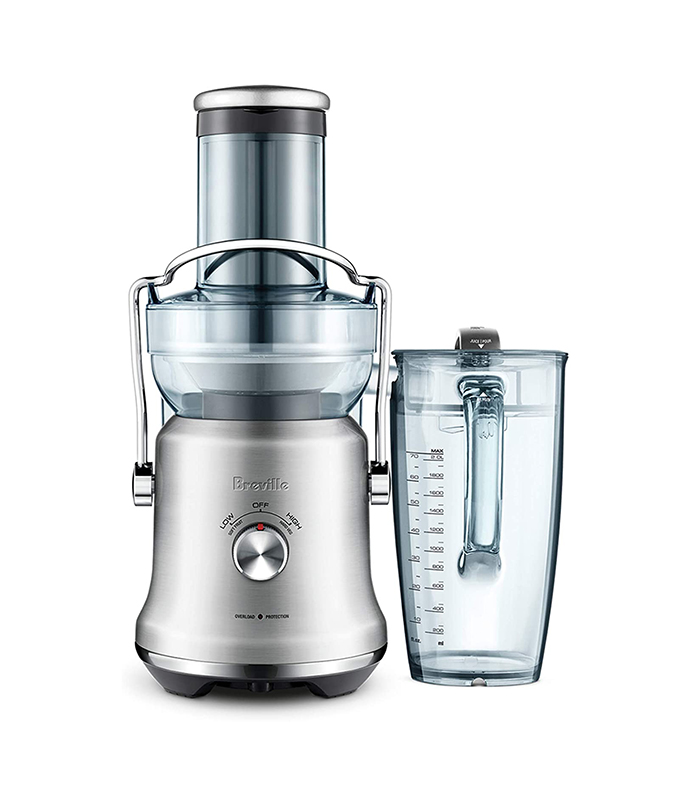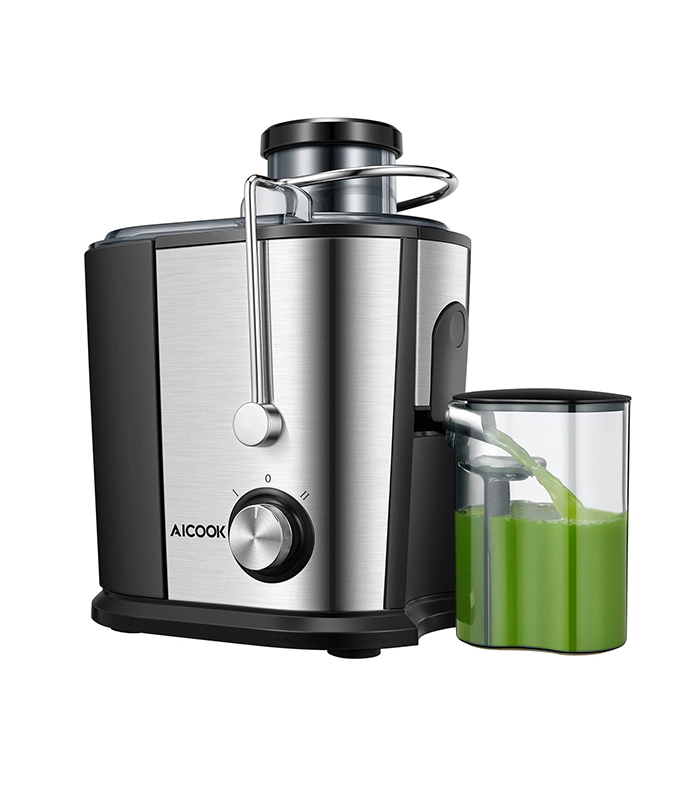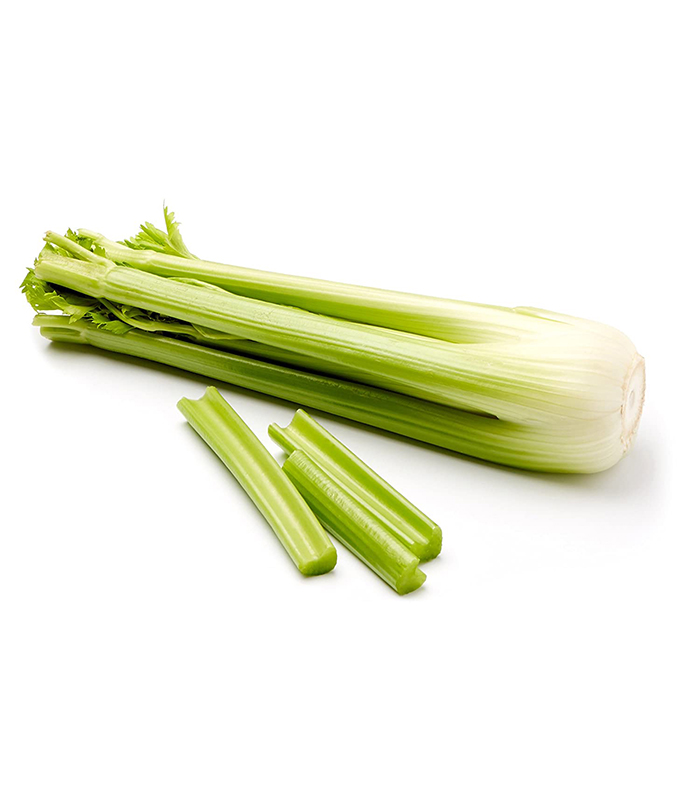Is This Buzzy Juice Trend Really That Good for You? Nutritionists Explain
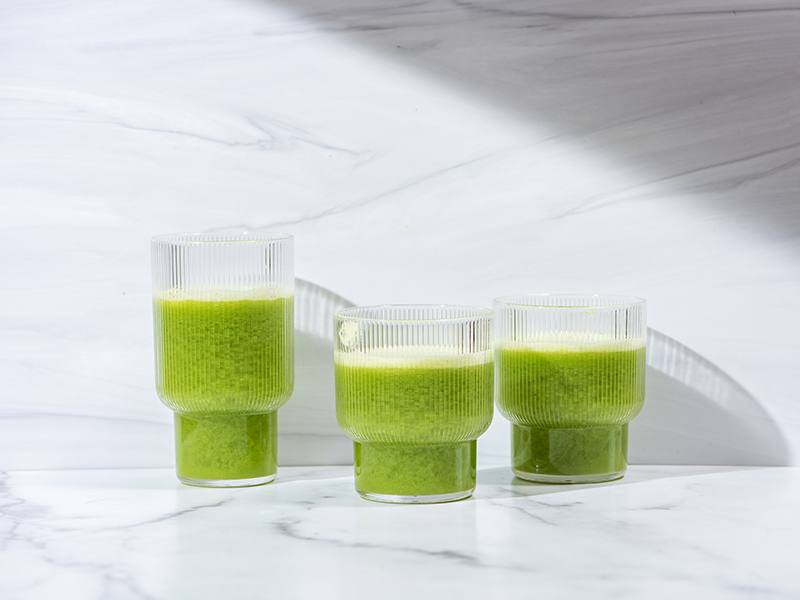
If you've been following wellness trends the last couple of years, you're probably familiar with celery juice. I'd say in late 2018 and 2019, we hit peak celery juice. It was all over Instagram, celebrities such as Gwyneth Paltrow and Jennifer Aniston were promoting its benefits, and it was a staple at health-food stores and juice shops.
"The celery-juice craze can be attributed to Anthony William, aka the Medical Medium, who calls it a 'miracle superfood,'" explains Serena Poon, CN, CHC, CHN, chef, nutritionist, Reiki master, and founder of the Culinary Alchemy program. "William espouses drinking 16 ounces of celery juice a day to cure chronic illness, autoimmune disease, and viruses, support mental health, prevent disease, and reduce inflammation." Sounds great, right?
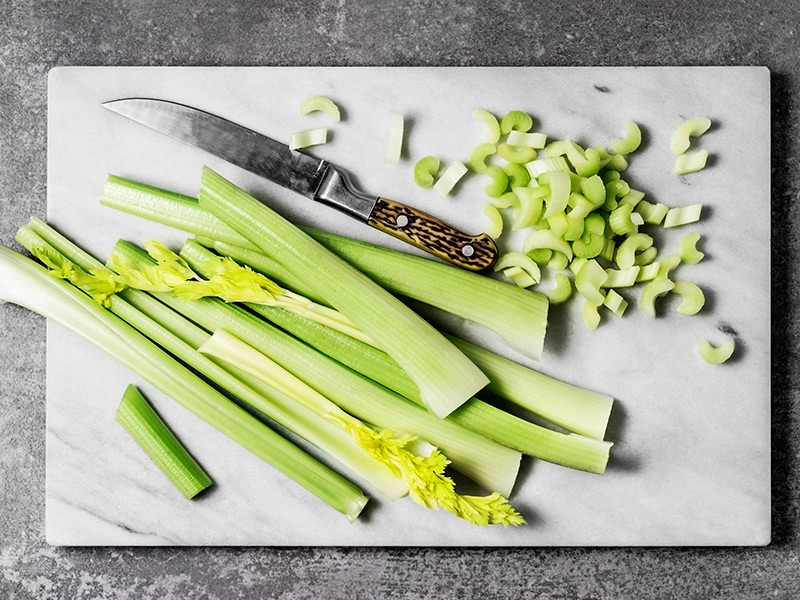
Not so fast. "It's true that celery juice and other pure 'green juices' are not as high in sugar and can be incorporated into a healthy diet—it's just that many of the claims surrounding celery juice aren't necessarily backed by science," explains Carielle Nikkel, MS, RDN, the director of nutrition at Persona Nutrition.
But before you swear off celery juice forever, there are some benefits to it, along with some cons. We did some investigating into the trend so you can decide if it's for you. Here's what we found.
Juicing 101
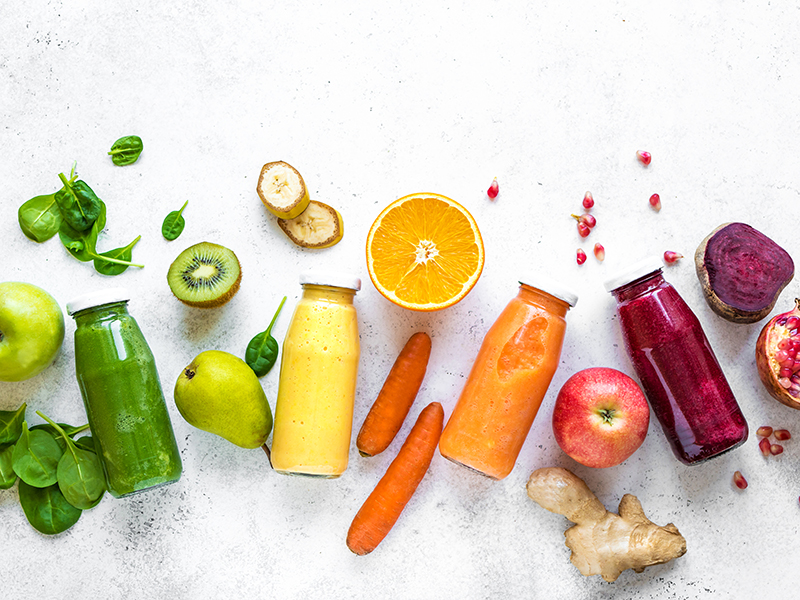
First, let's talk about juicing. It can be a good option for getting your daily servings of fruits and veggies. "Generally speaking, fresh-pressed, nutrient-dense vegetable juices are a great way to take in vitamins and minerals from a whole-food source, which often gives people a boost in energy and vitality," Poon says. "People who drink low-sugar, cold-pressed green juice of any kind on a regular basis usually notice benefits such as higher energy levels, better skin, and better mood." Poon recommends her clients switch up their vegetables to get a diverse array of vitamins, minerals, and antioxidants.
But there's a catch to juices, too. They can be packed with sugar, especially the store-bought ones, so you'll want to proceed with caution. "The idea of 'juicing' to promote detoxification, weight loss, digestive issues, etc., is nothing new," Nikkel says. "But the truth is juice cleanses are typically full of fructose sugar and stripped of fiber. This ends up spiking your blood sugar, which crashes an hour or so later, disrupting your hunger hormones and leaving you feeling exhausted and hungry."
The best plan of action if you want to jump on the juicing train safely is to talk to a nutritionist, dietitian, or another medical professional who can give you some insight and consumption tips so you're getting the most nutrients without a sugar spike.
Poon says the most natural and preferred way to consume celery juice is by juicing it at home. "If you don't have a juicer, you can always use a blender and pour the result through a strainer to extract the juice," she recommends. "If you prefer to purchase your celery juice premade instead, make sure to look for a raw, organic, cold-pressed celery juice. The best place to find a high-quality, cold-pressed juice would be from your local juice shop. If you are buying a pre-packaged product, make sure that celery juice is the only ingredient, as sometimes packaged juices contain sweeter juices with a lot of sugar."
The Pros of Celery Juice
It's Packed With Nutrients
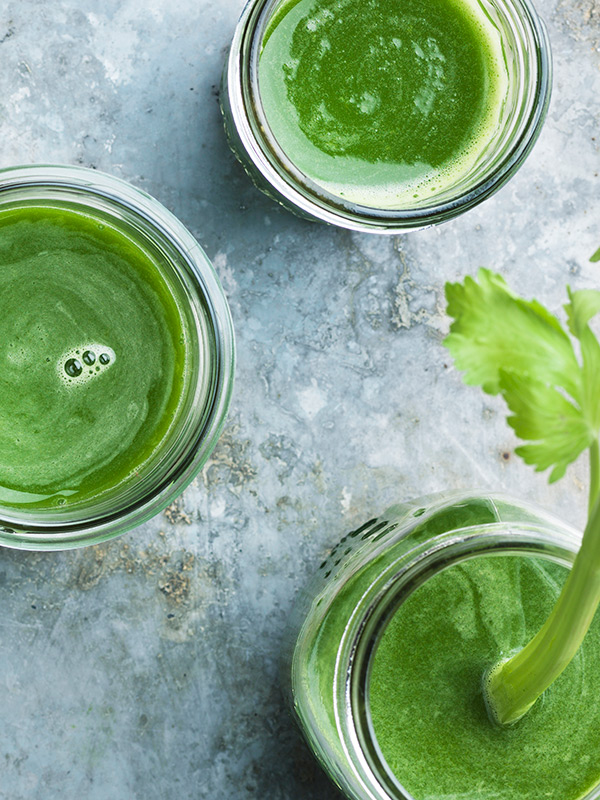
Both Nikkel and Poon say it's a nutrient-rich beverage. It contains calcium, sodium, potassium, and vitamins A and K.
It's Also Got Plenty of Antioxidants
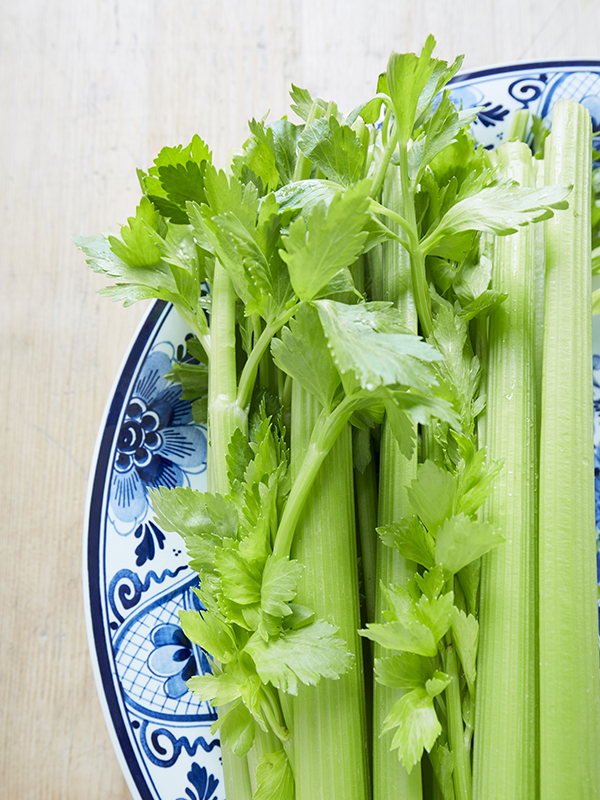
"Celery juice is also packed with antioxidants!" Nikkel says. "Celery contains compounds such as caffeic acid, p-Coumaric acid, ferulic acid, apigenin, luteolin, tannin, saponin, and kaempferol, giving it powerful antioxidant characteristics."
It's an Easy Way to Get Nutrients
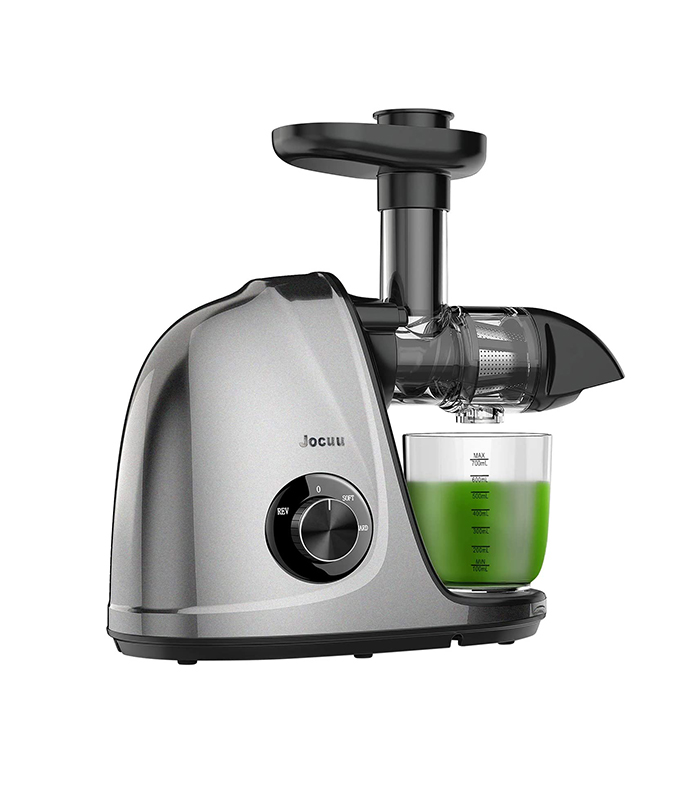
It can be tough to make sure you're getting all your dietary needs, so juicing can help. "One of the great things about juicing, in general, is that without the fiber, your body is able to absorb nutrients without working hard to digest food," Poon says. "That being said, fiber is a really important component of your diet, so make sure to balance out your juicing with high fiber whole foods."
It Might Have Anti-Inflammatory Benefits

"While there are no studies that point specifically to celery's anti-inflammatory potential, it is conceivable that celery's high-antioxidant content would support a decrease in inflammation throughout the body," Poon says.
It Supports Digestion

More official research needs to be done on celery juice's digestion benefits, but Poon says anecdotally it has shown to decrease bloat, ease indigestion, and generally support a healthy digestive system.
It's Hydrating
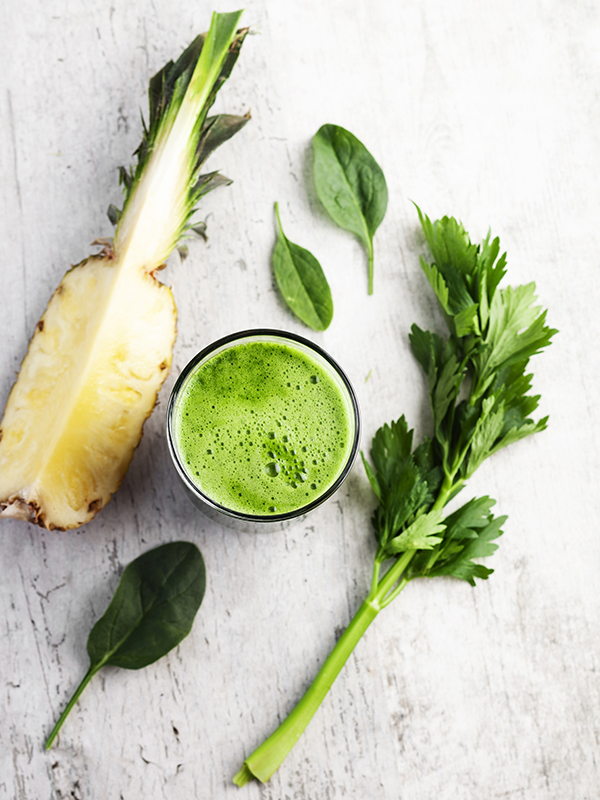
Nikkel says celery is 90% water, so you'll be staying hydrated. "Drinking a large glass of water with added nutrients is usually a great idea, as generally, people don't drink enough water throughout the day," Poon adds.
It May Reduce Your Cancer Risk

"One study demonstrated that the flavonoids found in celery to be helpful in attacking pancreatic cancer cells," Poon explains. "While the number of flavonoids needed to kill cancer cells would be hard to consume through food, the scientists note that regularly eating these foods may prevent the onset of cancer."
It May Help Lower Your Cholesterol

Poon cites a study that found celery can help lower "bad" LDL cholesterol and increase "good" HDL cholesterol.
The Cons of Celery Juice
It Lacks Fiber
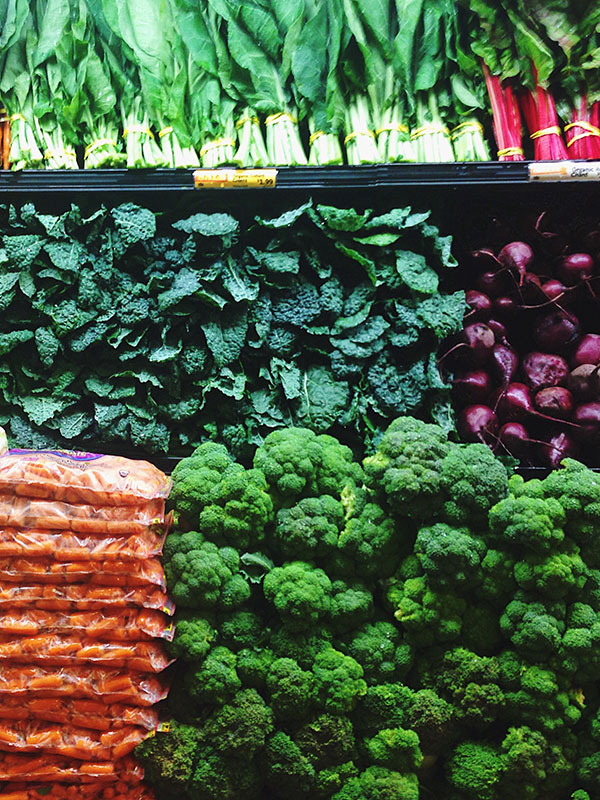
"By juicing celery rather than eating it, you're losing the fiber that feeds the good bacteria in your microbiome," Nikkel says. This is common for all fresh-pressed juices, Poon adds. If you're consuming them, she also recommends people continue to eat a diet rich in fiber since it's important for digestive health.
It's High in Sodium
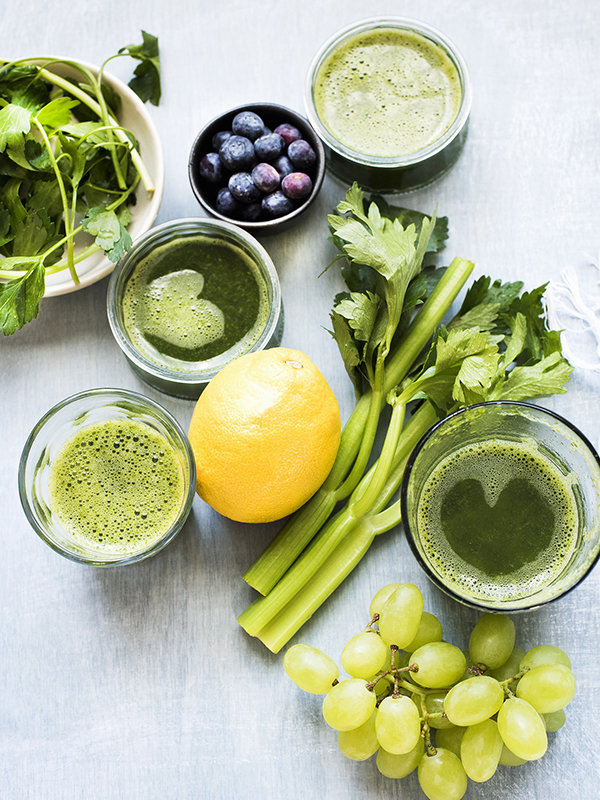
"The sodium content in celery juice contributes to its hydrating properties but also makes it a bad habit to consume daily as it can increase blood pressure over time for those who are already consuming more than the RDA (recommended dietary allowance) for sodium (which most Americans are)," Nikkel says.
It's Not Exactly Science-Backed

While celery in itself has its benefits, the bigger draws of celery juice—such as its ability to cure diseases and illnesses—are not scientifically proven, Poon says. More research needs to be done.
It Might Mess With Some Medications

"If you are taking anti-clotting medication, you should avoid it since vitamin K can interfere with your medication," Nikkel says.
It Might Make Some Health Conditions Worse

Since celery juice is high in sodium, you'll want to be careful if you have certain conditions. "You might want to avoid a daily celery juice if you suffer from high blood pressure," Poon says. "A diet that is high in sodium can be linked to high blood pressure, hypertension, and cardiovascular disease."
The Verdict

Since more research needs to be done on ALL of celery juice's benefits, it's ultimately up to you to decide if it's right for your specific lifestyle. Like most things, there are pros and cons to keep in mind, and that all depends on your personal health record.
"At the very least, celery juice is hydrating, nutrient-rich, and full of antioxidants," Nikkel says. "I think it's a great addition to a weekly routine, especially for those who were consuming very few vegetables before. However, I'm a proponent of incorporating a variety of vegetables if you are going to juice to incorporate a healthy range of nutrients in your diet."
And of course, there's always the option of just eating celery rather than drinking it. "The best way to consume it is to eat it!" Nikkel says. "Juicing celery will provide concentrated amounts of nutrients such as vitamin K, vitamin C, folate, and potassium. But if you eat it or add it to a smoothie, you are getting all the good bacteria-feeding fiber, which is lacking in most adult diets."
Next up: 35 Fruits and Veggies to Solve Your Skin, Digestion, and Inflammation Problems
This article is provided for informational purposes only and is not intended to be used in the place of advice of your physician or other medical professionals. You should always consult with your doctor or healthcare provider first with any health-related questions.
Sarah is lifestyle writer and editor with over 10 years of experience covering health and wellness, interior design, food, beauty, and tech. Born and raised in Los Angeles, she attended New York University and lived in New York for 12 years before returning to L.A. in 2019. In addition to her work at Who What Wear, she held editor roles at Apartment Therapy, Real Simple, House Beautiful, Elle Decor, and The Bump (sister site of The Knot). She has a passion for health and wellness, but she especially loves writing about mental health. Her self-care routine consists of five things: a good workout, “me” time on the regular, an intriguing book/podcast/playlist to unwind after a long day, naps, and decorating her home.
